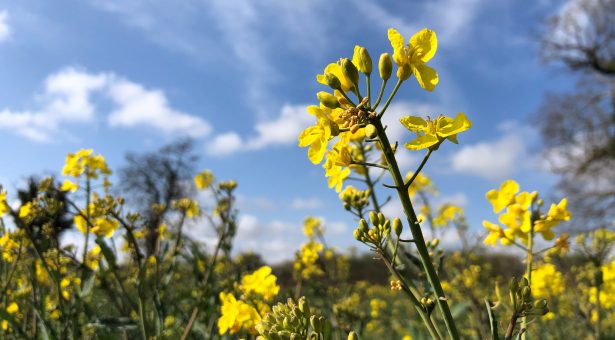Oilseed rape

Oilseed rape, a brassica, is an important arable rotation crop grown for its edible vegetable oils, animal feed and biodiesel. However, since the ban on the use of neonicotinoid seed dressingsto control insect pests, the cabbage stem flea beetle has caused a decline in oilseed rape yield.
In 2020, yield was the lowest recorded this century, due to the reduced ability to control pests resulting in less land being dedicated to the growth of oilseed rape by farmers.
Dr Rachel Wells’ group are researching the susceptibility of different varieties of oilseed rape to cabbage stem flea beetles as part of a large collaboration to find solutions to tackle this devastating pest. Additional beetle feeding experiments take place in very controlled conditions within the Insectary at the John Innes Centre.
Yield is also affected by winter temperature. Tom Lock (Professor Steven Penfield’s group ) is investigating how climate change is affecting rapeseed development. Low yields correlate to warm winters with just a 1°C increase in temperature during the winter resulting in 113kg/hectare loss of yield.
An experimental trial has been set up where a high yielding but susceptible to winter temperature variety has been crossed with a low yielding, but temperature resilient variety and the most promising progeny are being tested in the field. The aim is to generate a commercially viable, climate smart variety of oilseed rape.
